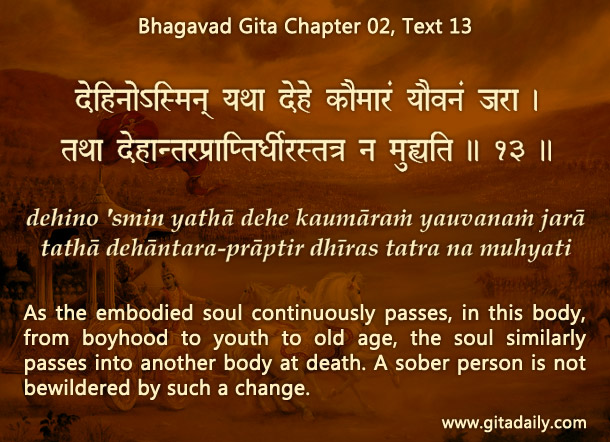As we live in a rabidly competitive society, we may feel that we lack self-esteem. Such feelings become aggravated when the media bombards us with images of people who look perfect.
But such a quest of self-esteem sentences us to insecurity because we conceive our esteem worthiness largely through comparison: we evaluate whether we are good enough based on how good others are. We can become far more securely situated if we strive for self-understanding instead of self-esteem.
Such self-understanding can have three aspects. Firstly, it implies understanding who we really are. The Bhagavad-gita (02.13) explains that our identity extends beyond our material body and things connected with it – things that are usually the basis of our self-esteem. We are at our core souls who can have lives of contribution and satisfaction, provided we just live as we are meant to be, as parts of the all-attractive whole, Krishna. As his parts, we can serve him devotionally with whatever abilities and resources we have.
Secondly, self-understanding means understanding what we are in our present embodied state. That is, we understand our talents and strengths, and learn how we can do justice to them – without agonizing why we are not Xerox copies of some media-created stereotypes of perfection.
Thirdly, self-understanding means becoming more understanding of ourselves. That is, instead of condemning ourselves for our shortcomings, we can remind ourselves that we never fall off life’s learning curve – we can still learn and improve. In this spirit, we can gently counsel ourselves, as we might counsel a friend. We avoid the two extremes of denying our failings and obsessing over them. Instead, we kindly but firmly encourage ourselves to better bring out our strengths.
When empowered by such self-understanding, we can bypass the insecurities inherent in comparison-centric notions of self-esteem, and increasingly unleash our latent potentials.


Very good article,enriched with core wisdom…Thank you…
It is very difficult to escape from self esteem,but KRISHNA BHAKTI only does it